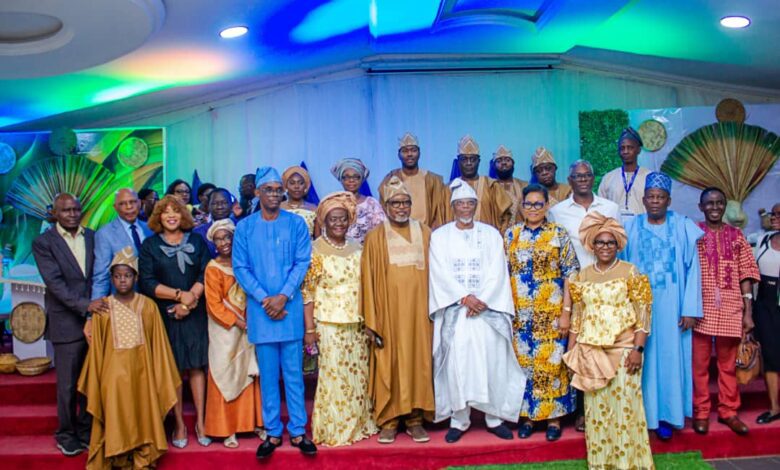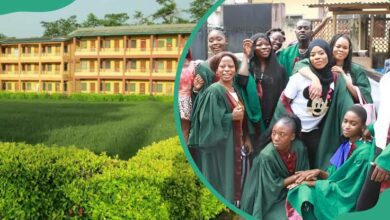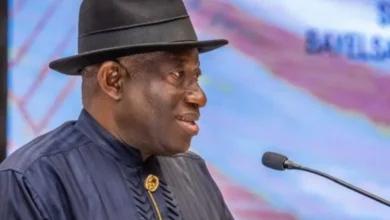Falola, culture enthusiasts, others celebrate Yoruba heritage of activism
This conference is holding at an important time when the country is undergoing a protest."


Globally recognized authority on African history, Professor Toyin Falola, on Monday, led many foremost scholars and members of the public in celebrating Yoruba heritage of activism.
Falola who is the Frances Sanger Mossiker Chair in the Humanities at the University of Texas at Austin, has been at the forefront of championing Yoruba history and heritage.
This was the case at the opening ceremony of the Seventh J.A. Atanda Lectures and Conference, which commenced on Monday, August 5 and is expected to end on Wednesday, August 7, 2024.
The event, holding at the International Conference Centre, Lead City University, Ibadan, has as its theme: Yoruba Activisms.
Speaking as the convener of the conference, Falola emphasized the relevance of the conference particularly in Nigeria’s current socioeconomic realities.
“This conference is holding at an important time when the country is undergoing a protest. As the conference convener, I cannot anticipate this coincidence. As the nation becomes part of what the conference is about, I am sure scholarly lessons will come out of it. Activism is as old as the Yoruba and Nigeria. It should be added that there is no scholarly consensus on the idea of activism.
Activism can be the reaction of people to the issues around them. Activism is borne from a place of deep discomfort. Imbalances and inequalities trigger responses from humans. Scholarly attention has noted that activism of various kinds is often geared towards the realization of either social or political change or a mixture of both.
This further connects to the larger idea that activism embraces positivity even when sometimes the various means by which it may be carried out could be tailored to some negative ideals; the overall effect may still be positive.
Based on this, one can even redefine activism as a “negative” force for positive change. The word “negative” here is quoted because of its multi-layered meaning.For instance, when members of a society are reacting or advocating for a social change, their methods, often revolutionary, are termed as negative; however, their drives are for a positive change.
“It is further necessary to posit that activism among the Yoruba people includes a sense of empowerment.
From the Yoruba epistemological standpoint, it is understood that no perfect relationship exists in society. On one occasion or the other, there would be a disorder. In such circumstances, the members of the society are, therefore, empowered to restore order and normalcy.
This could be realized in the deposition of traditional rulers and intra-tribal wars, among others. That cultural sense of empowerment is rooted in the idea of resistance to chaos or disorderliness, without which the communities would not forge ahead in the spectrum of justice and humanity.
“Contemporary activism can be bifurcated into two: political and cultural. Political activism can be seen in the sense or struggle of the Yoruba not to lose their political identity and relevance in national politics, while cultural activism can be seen in the efforts not to lose Yoruba linguistic or, in a broader sense, cultural heritage. On the political side, take the example of the OPC, which evolved in the aftermath of the annulment of the 1993 elections.
This group existed to protect the identity of the Yoruba people, which they believed could be achieved with a Yoruba presidency, even when this looked like a far shot. The political activism of the OPC became directed at preventing the marginalization of their race and contributing to national development.
“Various social media groups who identified themselves as sons and daughters of Oduduwa, the mythical founder of the Yoruba ancestry, through digital activism promoted the secession of the Yoruba people. Some of these protests were taken to the public sphere and led to clashes between the agitators and the nation’s security architecture, leading to the loss of lives and the arrest of some of the agitators. Sunday Igboho himself was arrested and detained in the Benin Republic through the consolidation of the Nigerian and Beninese security intelligence. Scholarly attention has noted that these agitations were borne of purely Yoruba nationalism. This has been attested to as these clamours have watered down following the emergence of another Yoruba president, Bola Ahmed Tinubu, who they believe will protect and guide the essence of the Yoruba heritage.
“Many Yoruba people believe that an ethnic heritage dies the moment the people do away with their language. This further confirms scholarly assumptions that language is the repository of culture and traditions.
Those who promote the use of language and Yoruba culture are cultural activists. A rich program, the 7thAtanda conference promises to enrich us on the various dimensions of society and how to move the nation in the right direction,” he said.
Other speakers who harped on the importance of the conference included the keynote speaker, Dr Akin Osuntokun, the lead paper presenter, Dr Lasisi Olagunju, the Orangun Oke Ila, Oba Adedokun Abolarin, historians, culture enthusiasts, among several others.




